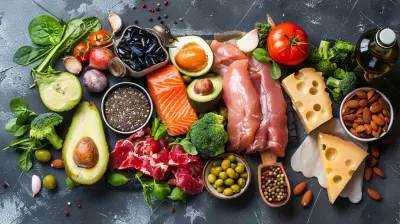Inflammation and Low Carb Diets: How They’re Connected
28 May 2025
Inflammation—it's a word that gets thrown around a lot these days, especially when discussing health and nutrition. But what does it actually mean, and more importantly, how does what we eat influence it?
One dietary approach that has gained a lot of popularity in recent years is the low-carb diet. While many people turn to it for weight loss, there's growing evidence that reducing carbs might also help in taming inflammation. Could this mean fewer aches, better digestion, and a healthier life overall? Let’s dive in. 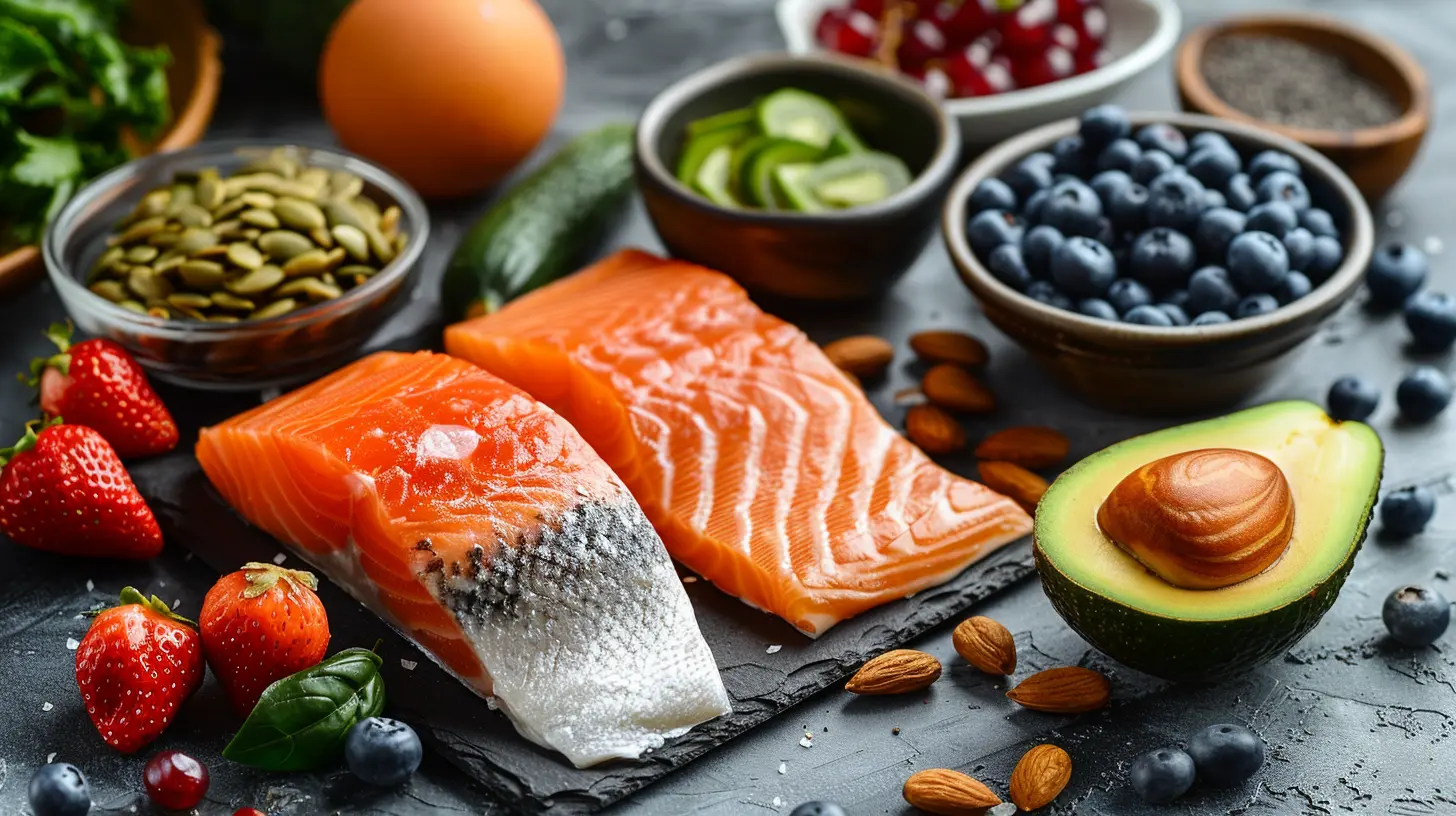
What Exactly Is Inflammation?
At its core, inflammation is the body’s natural defense mechanism. It’s how our immune system responds to infections, injuries, or toxins. There are two types:- Acute Inflammation – This is the good kind. If you cut your finger or catch a virus, your body sends white blood cells to fight off infection and begin the healing process. The swelling, heat, and redness? That’s your body doing its job.
- Chronic Inflammation – This is where things get tricky. When inflammation sticks around for weeks, months, or even years, it can start attacking healthy cells, leading to serious health problems like heart disease, diabetes, and autoimmune conditions.
So, what causes chronic inflammation? A big factor is our diet. And that’s where a low-carb approach enters the scene. 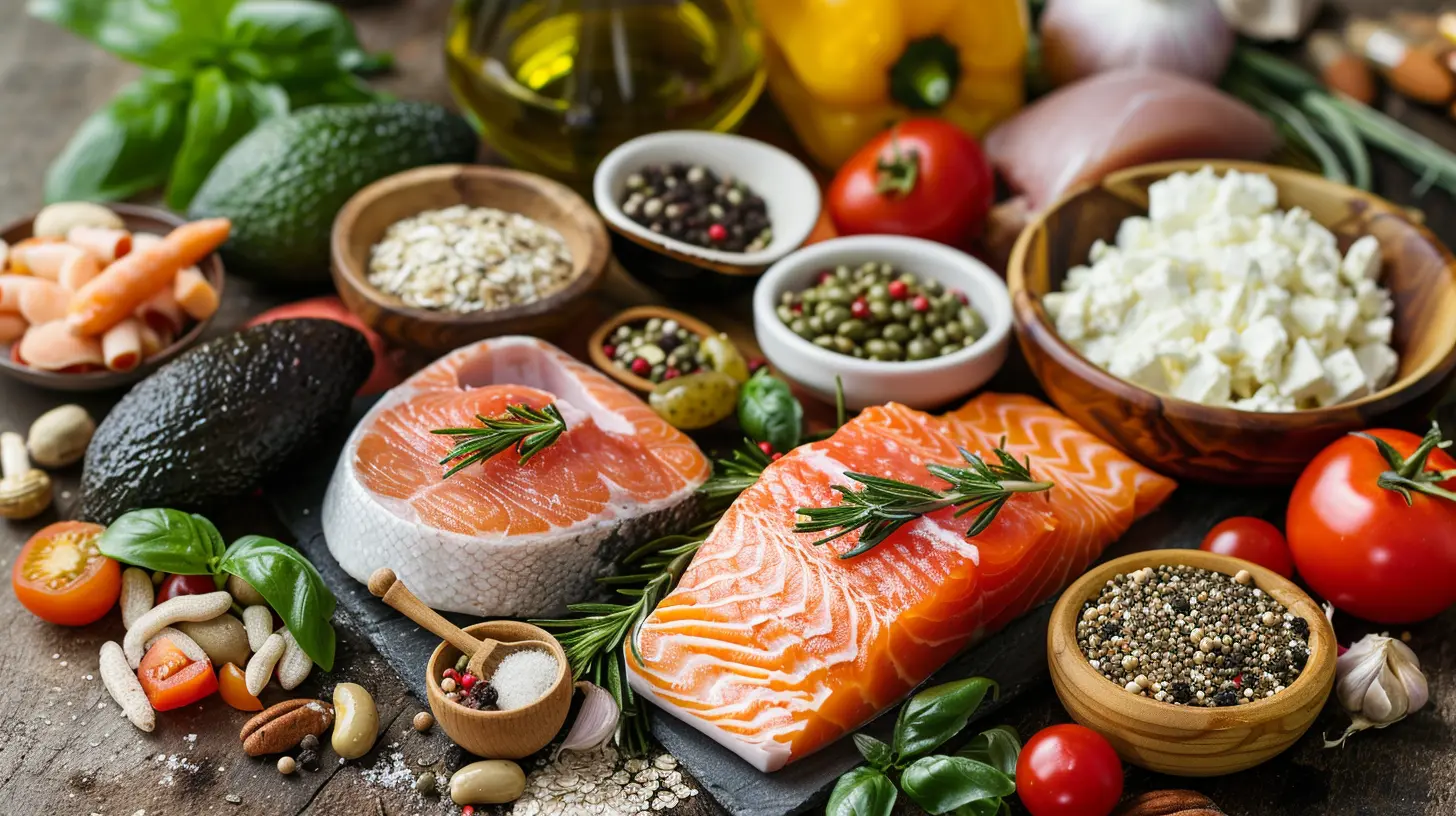
How Does Diet Influence Inflammation?
Food is more than just fuel—what we eat directly impacts how our body functions. Some foods promote inflammation, while others help keep it in check.Pro-Inflammatory Foods (The Usual Suspects)
Certain foods have been linked to increased inflammation. These include:- Sugar & Refined Carbs: Think white bread, pastries, soda, and anything with high-fructose corn syrup. These spike blood sugar levels, leading to more inflammatory markers in the body.
- Processed Foods: Chips, fast food, and packaged snacks often contain artificial additives, unhealthy oils, and refined sugars—all culprits in chronic inflammation.
- Vegetable & Seed Oils: Oils like soybean, sunflower, and corn oil are high in omega-6 fatty acids, which, when consumed in excess, can contribute to inflammation.
- Trans Fats: Found in fried foods and margarine, trans fats raise inflammatory markers and increase the risk of heart disease.
Anti-Inflammatory Foods (The Good Stuff)
On the flip side, some foods help reduce inflammation:- Healthy Fats: Think avocados, olive oil, nuts, and fatty fish like salmon—they’re packed with omega-3s, which are inflammation fighters.
- Leafy Greens & Veggies: Spinach, kale, and broccoli are rich in antioxidants that neutralize inflammation.
- Berries: Blueberries, raspberries, and strawberries are loaded with polyphenols that combat oxidative stress.
- Herbs & Spices: Turmeric, ginger, and garlic have powerful anti-inflammatory properties.
So, where does a low-carb diet fit into all of this? 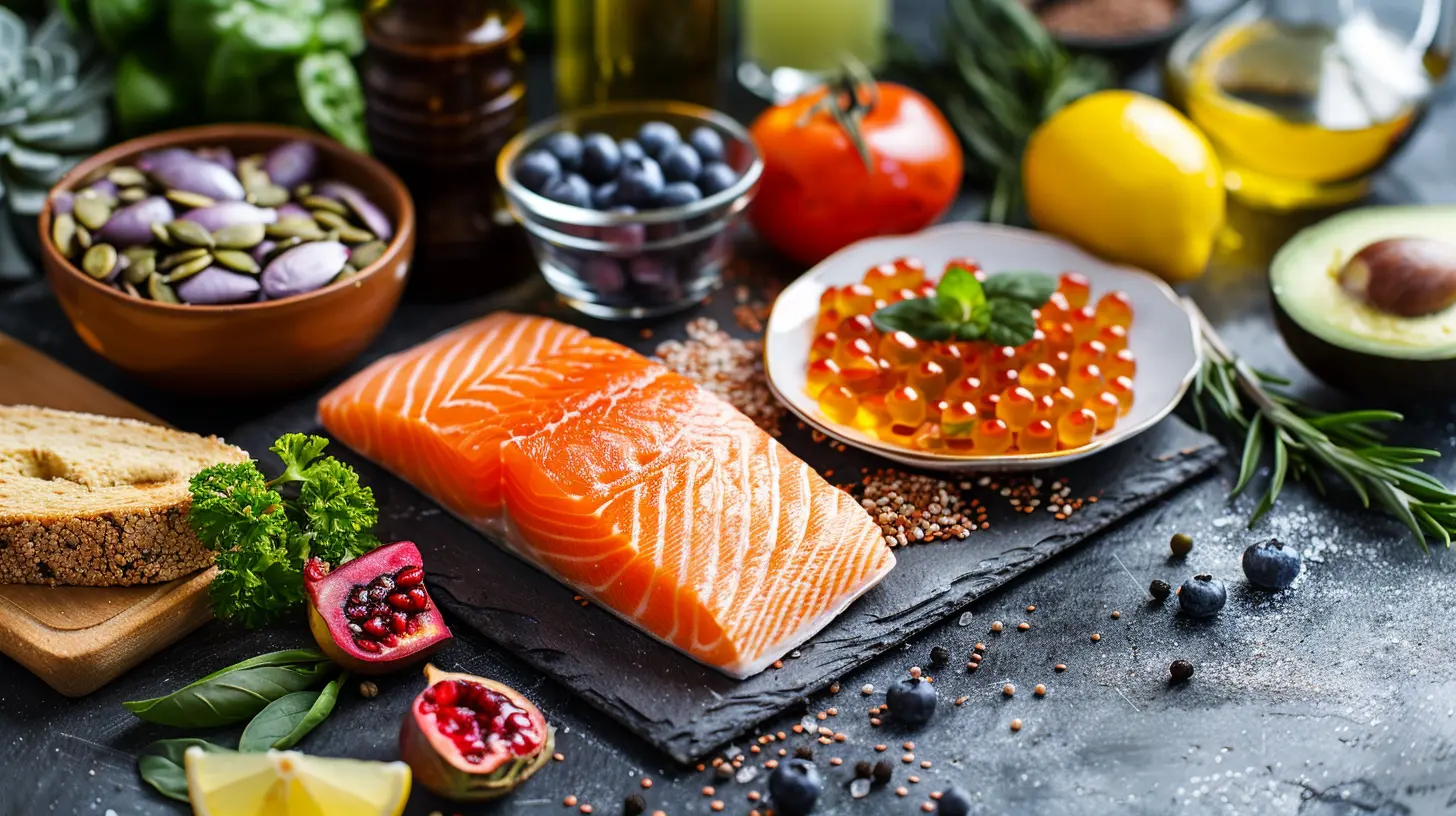
The Low-Carb Diet and Inflammation: What’s the Connection?
A low-carb diet focuses on cutting out processed carbs and sugars in favor of whole, nutrient-dense foods. Here’s how it can help put out the fire of chronic inflammation:1. Lowers Blood Sugar and Insulin Levels
When you eat a lot of carbs—especially refined ones—your blood sugar spikes. Your body then releases insulin to shuttle that sugar into your cells. Over time, too much insulin can lead to insulin resistance, a key driver of chronic inflammation.By cutting down on carbs, you stabilize blood sugar and reduce the need for excessive insulin, lowering inflammation in the process.
2. Reduces Processed and Inflammatory Foods
Let’s be honest—most high-carb diets are packed with processed junk. By switching to a low-carb diet, you naturally cut out inflammatory culprits like refined sugars, trans fats, and processed grains.3. Encourages Healthy Fats and Nutrient-Dense Foods
A well-formulated low-carb diet is rich in whole foods like grass-fed meats, fish, nuts, and vegetables—all of which are loaded with vitamins, minerals, and healthy fats that combat inflammation.4. Supports Gut Health
Your gut health plays a huge role in inflammation. An imbalanced gut microbiome can trigger immune responses, fueling chronic inflammation. A low-carb diet, especially one focused on whole foods, promotes a healthy gut by eliminating inflammatory triggers like artificial additives and excess sugar.5. Aids in Weight Loss (Which Lowers Inflammation, Too!)
Excess body fat, especially around the belly, produces pro-inflammatory substances. Losing weight—especially through a diet that stabilizes insulin and reduces processed foods—can significantly lower inflammation markers.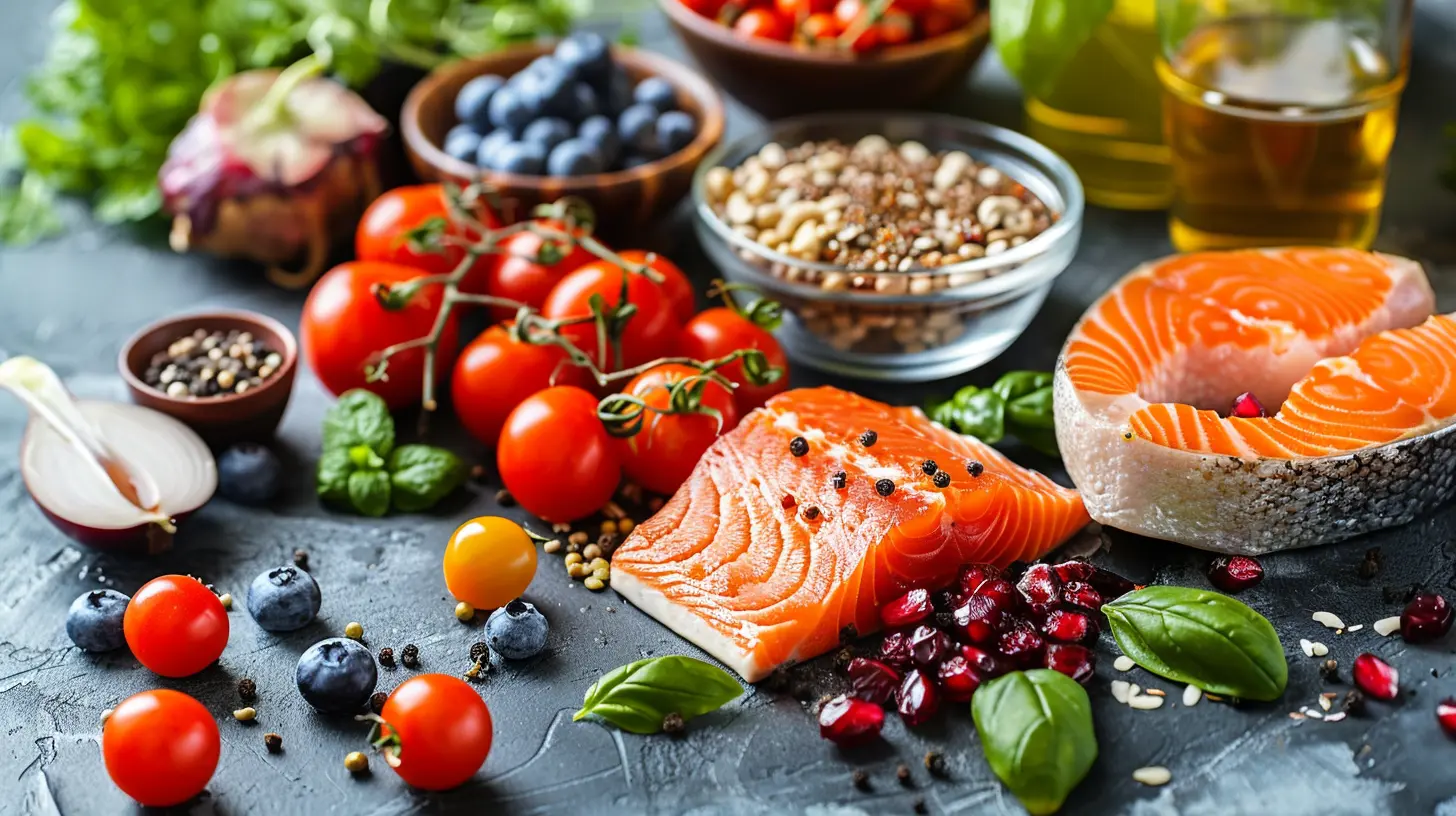
Science-Backed Benefits: What Do Studies Say?
Science backs up the idea that low-carb diets help fight inflammation.- A study published in the Journal of Nutrition found that a low-carb, high-fat diet significantly reduced inflammatory markers in overweight individuals.
- Another study in the Journal of Clinical Endocrinology & Metabolism showed that a ketogenic diet (a very low-carb diet) reduced oxidative stress and inflammation in people with metabolic syndrome.
- Research also indicates that people following a low-carb or ketogenic diet experience improved arthritis symptoms, lower C-reactive protein (CRP) levels (an inflammation marker), and better overall health.
The science is clear—ditching processed carbs and sugars can have profound effects on inflammation levels.
Is a Low-Carb Diet Right for You?
A low-carb diet isn’t a one-size-fits-all approach, but if you're struggling with chronic inflammation, high blood sugar, or weight gain, it’s worth considering.Who Might Benefit the Most?
- People with autoimmune conditions (like rheumatoid arthritis or lupus)- Those with type 2 diabetes or insulin resistance
- Anyone struggling with digestive issues or gut problems
- Individuals dealing with chronic pain or joint inflammation
That said, it’s important to listen to your body. Some people do better with moderate carbs, especially if they’re active or have certain medical conditions.
How to Start a Low-Carb Anti-Inflammatory Diet
If you’re ready to give it a shot, here are some simple steps:1. Cut Out the Junk – Ditch processed foods, refined sugars, and high-carb snacks.
2. Focus on Whole Foods – Stick to proteins, healthy fats, and nutrient-dense veggies.
3. Incorporate Anti-Inflammatory Spices – Add turmeric, ginger, and garlic to meals.
4. Stay Hydrated – Proper hydration supports detoxification and reduces inflammation.
5. Listen to Your Body – Start slow and adjust based on how you feel.
Final Thoughts
Inflammation is at the root of many chronic diseases, but the good news is that we have the power to control it—starting with what’s on our plate.A low-carb diet naturally removes many of the foods that fuel chronic inflammation and replaces them with nourishing, anti-inflammatory alternatives. The result? Better energy, less pain, improved digestion, and overall better health.
If you’ve been battling inflammation for years, maybe it’s time to try something different. After all, what we eat shapes how we feel—why not choose foods that help your body heal instead of harm it?
all images in this post were generated using AI tools
Category:
Low Carb DietAuthor:

Arthur McKeever
Discussion
rate this article
3 comments
Selkie McHugh
This article effectively highlights the relationship between inflammation and low-carb diets. It offers valuable insights on how reducing carbohydrate intake may help mitigate inflammation-related issues. A well-researched read for anyone looking to enhance their health through dietary choices!
June 7, 2025 at 2:32 AM

Arthur McKeever
Thank you for your thoughtful feedback! I'm glad you found the insights on low-carb diets and inflammation valuable. Your support means a lot!
Sylvan Rivera
Embrace the power of low carb diets! They can reduce inflammation and boost your health—your journey to wellness starts here!
June 6, 2025 at 2:29 AM

Arthur McKeever
Thank you! Embracing low carb diets can indeed play a significant role in reducing inflammation and promoting overall health. Glad you found it helpful!
Blaine Rivera
Ah, yes! Because who doesn’t love inflaming their dinner plate with a side of confusion? Nothing screams health like dodging carbs and wrestling with inflammation—sounds like a recipe for wellness, right? Pass the kale and chaos, please!
June 1, 2025 at 4:36 PM

Arthur McKeever
I appreciate your humor! While the connection between inflammation and low-carb diets can be complex, many find benefits in reducing certain carbs to manage inflammation. It's all about finding what works best for your body!
